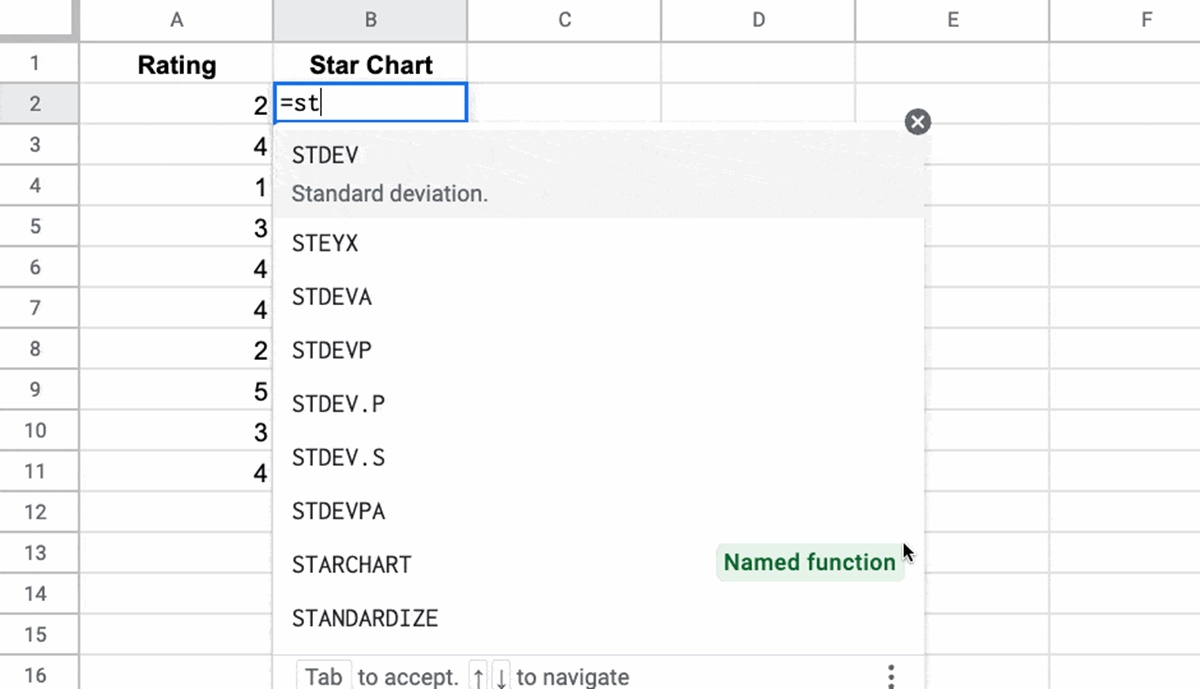
The "NOT BLANK" function in Google Sheets is a powerful tool that allows you to filter out blank cells and only show data that meets specific criteria. In this article, we'll dive into the world of NOT BLANK functions and explore how to use them to make your Google Sheets workflow more efficient.
What is the NOT BLANK Function?
The NOT BLANK function is a logical function in Google Sheets that returns a boolean value of TRUE if a cell is not blank and FALSE if it is blank. This function is often used in conjunction with other functions, such as FILTER and QUERY, to filter out blank cells and only show data that meets specific criteria.
How to Use the NOT BLANK Function
To use the NOT BLANK function, simply enter the following formula into a cell:
=NOT(ISBLANK(cell reference))
Where "cell reference" is the cell you want to check for blank values.
For example, if you want to check if cell A1 is not blank, the formula would be:
=NOT(ISBLANK(A1))
If cell A1 is not blank, the formula will return a boolean value of TRUE. If cell A1 is blank, the formula will return a boolean value of FALSE.
Using NOT BLANK with FILTER
One of the most common use cases for the NOT BLANK function is in conjunction with the FILTER function. The FILTER function allows you to filter a range of cells based on specific criteria, and the NOT BLANK function can be used to filter out blank cells.
For example, let's say you have a range of cells A1:C10 that contains data, but some of the cells are blank. You can use the following formula to filter out the blank cells:
=FILTER(A1:C10, NOT(ISBLANK(A1:A10)))
This formula will return a filtered range of cells that only includes data that is not blank.

Using NOT BLANK with QUERY
Another common use case for the NOT BLANK function is in conjunction with the QUERY function. The QUERY function allows you to run SQL-like queries on a range of cells, and the NOT BLANK function can be used to filter out blank cells.
For example, let's say you have a range of cells A1:C10 that contains data, but some of the cells are blank. You can use the following formula to query the data and filter out blank cells:
=QUERY(A1:C10, "SELECT * WHERE A IS NOT NULL")
This formula will return a query result that only includes data that is not blank.

Common Use Cases for NOT BLANK
The NOT BLANK function has a wide range of use cases in Google Sheets. Here are a few examples:
- Filtering out blank cells in a dataset
- Checking if a cell is not blank before performing a calculation
- Filtering out blank rows in a table
- Checking if a cell is not blank before sending a notification
Best Practices for Using NOT BLANK
Here are a few best practices to keep in mind when using the NOT BLANK function in Google Sheets:
- Use the NOT BLANK function in conjunction with other functions, such as FILTER and QUERY, to filter out blank cells.
- Use the ISBLANK function to check if a cell is blank, rather than the BLANK function.
- Use the NOT BLANK function to filter out blank cells, rather than the BLANK function.
- Use the NOT BLANK function to check if a cell is not blank before performing a calculation.

Common Errors to Avoid
Here are a few common errors to avoid when using the NOT BLANK function in Google Sheets:
- Using the BLANK function instead of the ISBLANK function to check if a cell is blank.
- Using the BLANK function instead of the NOT BLANK function to filter out blank cells.
- Not using the NOT BLANK function in conjunction with other functions, such as FILTER and QUERY.
Alternatives to NOT BLANK
There are several alternatives to the NOT BLANK function in Google Sheets, including:
- The ISBLANK function
- The BLANK function
- The FILTER function
- The QUERY function
However, the NOT BLANK function is often the most efficient and effective way to filter out blank cells and only show data that meets specific criteria.

Conclusion
In conclusion, the NOT BLANK function is a powerful tool in Google Sheets that allows you to filter out blank cells and only show data that meets specific criteria. By using the NOT BLANK function in conjunction with other functions, such as FILTER and QUERY, you can make your Google Sheets workflow more efficient and effective. Remember to use the ISBLANK function to check if a cell is blank, and the NOT BLANK function to filter out blank cells. With practice and experience, you'll become proficient in using the NOT BLANK function to achieve your goals in Google Sheets.




What is the NOT BLANK function in Google Sheets?
+The NOT BLANK function is a logical function in Google Sheets that returns a boolean value of TRUE if a cell is not blank and FALSE if it is blank.
How do I use the NOT BLANK function in Google Sheets?
+To use the NOT BLANK function, enter the following formula into a cell: =NOT(ISBLANK(cell reference)). Where "cell reference" is the cell you want to check for blank values.
What are some common use cases for the NOT BLANK function?
+The NOT BLANK function has a wide range of use cases in Google Sheets, including filtering out blank cells, checking if a cell is not blank before performing a calculation, and filtering out blank rows in a table.
![How to Count If Not Blank in Google Sheets [Tips and Tricks]](https://infoinspired.com/wp-content/uploads/2018/03/count-truly-non-blank-cells.jpg)

![How to Count If Not Blank in Google Sheets [Tips and Tricks]](https://infoinspired.com/wp-content/uploads/2018/03/countifs-not-blank.jpg)


/Webp.net-resizeimage1-5b021f288e1b6e003645a449.jpg)


:max_bytes(150000):strip_icc()/002_google-spreadsheet-functions-tutorial-4163591-4cb6b6c56ba645c8aee4f27893146267.jpg)

![How to Count If Not Blank in Google Sheets: 3 Ways [2020 Update]](https://sheetaki.com/wp-content/uploads/2020/02/count-if-not-blank-function-in-google-sheets-2-768x596.png)
